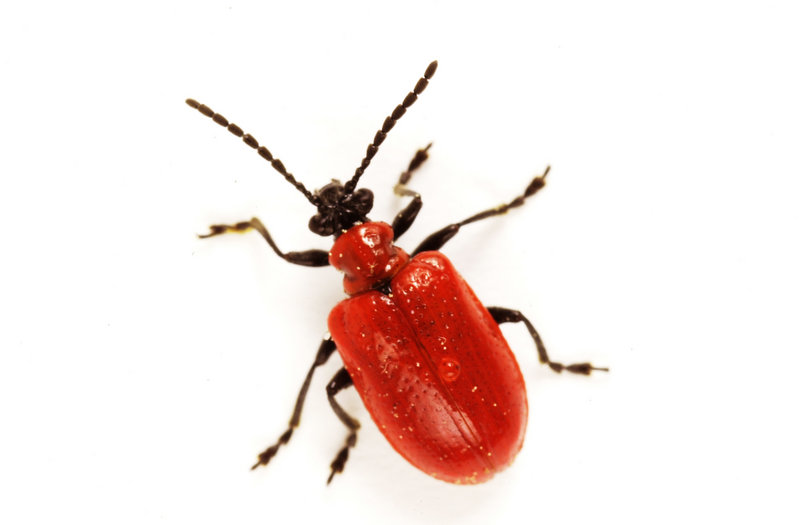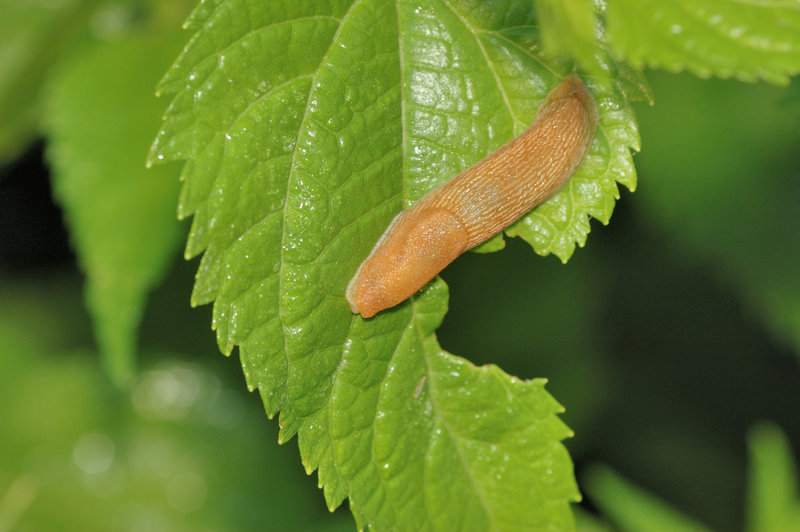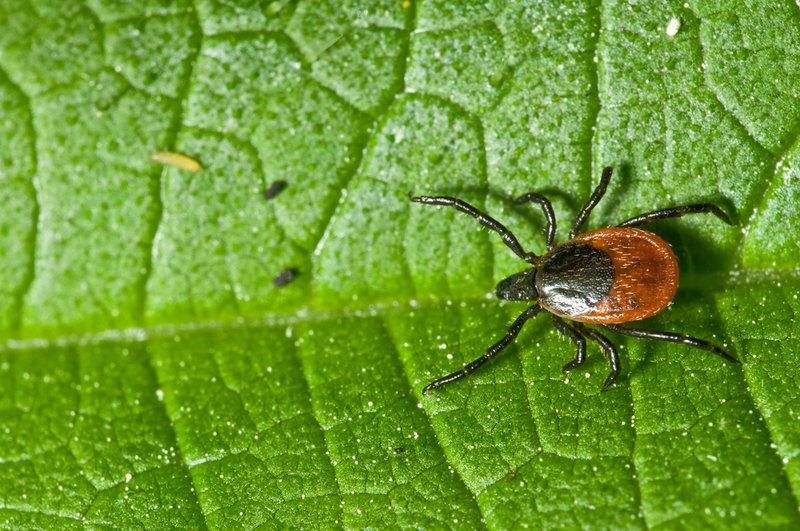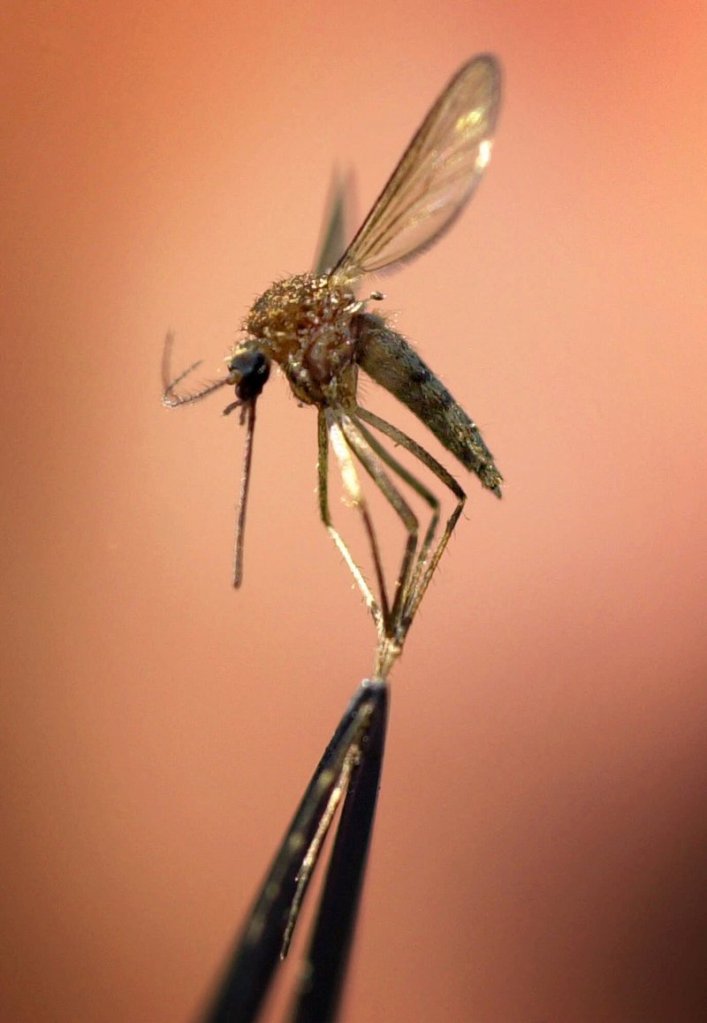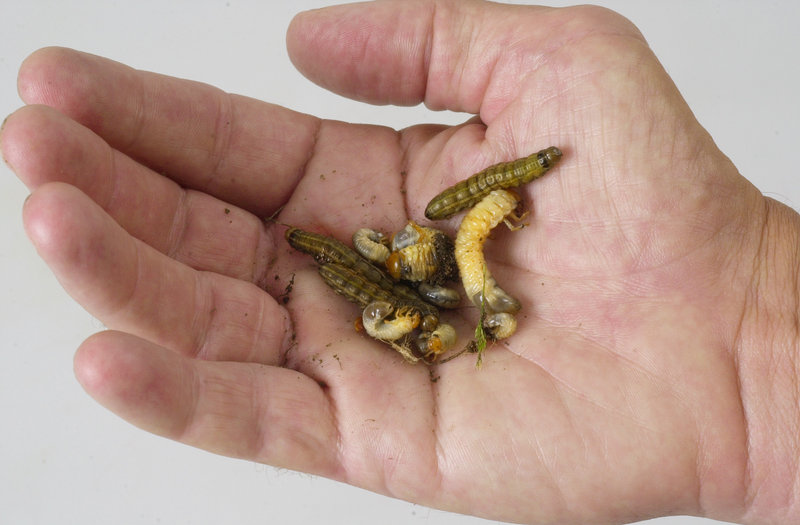There’s a reason your backyard is full of pests. Lots of reasons, actually.
And if you stop to consider those reasons — standing water breeds mosquitoes, tall grass gives shelter to ticks, soggy wood attracts slugs — you might find some long-range solutions.
Many bug and lawn experts say that instead of spending money on the newest mosquito zapper or insect killer, you might want to spend some time and energy making your backyard as unfriendly to pests as possible. Whether pests are flying or crawling, attacking you or attacking your plants, there are things you can do without using heavy artillery and heavy chemicals.
“The biggest thing you can do is have good sanitation, and by that I mean empty your birdbaths and clean your gutters, keep the grass mowed fairly short, and the hedges and trees trimmed,” said Jim Dill, pest management specialist with the University of Maine Cooperative Extension in Orono. “Make sure you don’t have debris lying around; slugs love that. Try to use non-decaying mulch.”
Paul Tukey, whose Falmouth-based Safe Lawns Foundation (safelawns.org) works to promote natural lawn care, says the best thing you can do to minimize pests is to have the most naturally healthy lawn and garden you can. If soil is healthy, and if roots and plants are strong, the pest problem should be kept to a minimum.
“When people are able to maintain a completely organic garden, we don’t see a pest control problem,” Tukey said. “If you’ve got an insect eating your lettuce, try to find out what’s wrong with that lettuce. Pests seek out weakness. If you have very healthy soil, organisms in your soil will eat the grubs, and you won’t have a grub problem in your lawn.”
Here are some tips on how to attack the causes of your backyard pests — without chemicals or gadgetry — from Dill, Tukey and Gary Fish, manager of the Pesticide Programs for the Maine Board of Pesticides Control in Augusta.
TICKS
Deer ticks don’t like mowed areas, Fish says, so cut the grass. It doesn’t have to be too short — maybe 3 or 4 inches — which still allows the grass to be healthy. But if you have grass or weeds growing to 8 or 10 inches, you’ll be giving ticks a place to hide, and a place they can use as a launching pad to attach to humans and animals.
If you border a wooded area, you can put down a 3-foot-wide strip of mulch or crushed stone as a tick barrier. Ticks are not likely to cross the stone or mulch to get to your yard.
SLUGS
Slugs eat lots of plants, especially hostas. They also love to take shelter on soggy wood or cardboard, so if you keep your yard debris-free, they’ll have fewer places to hide.
Also, if you have containers or window boxes of plants sitting on the ground, slugs are likely to be attracted to those and will climb right up the side. So you should raise those containers up on a couple of bricks.
Dill recommends using non-decaying mulch instead of wood mulch, because the latter can attract slugs. There is a non-decaying mulch that is made of old tires, for instance.
And Fish says you might try laying boards and cardboard on your lawn and in your yard — but away from the plants that slugs love — before evening. The next morning, collect the debris and dispose of the slugs. He admits this is not a “pretty” method, but it works.
GRUBS
The kind of grass you grow can have an effect on grubs, which are basically larval-stage beetles. Fish says grubs love healthy Kentucky bluegrass. But if you have lower-maintenance fescue grass and don’t keep it well watered, you are less likely to attract grubs.
Tukey says that if your grass is organic and healthy, organisms in the soil will eat the grubs. You can also buy these organisms — packaged, not crawling around — at garden stores and plant them in your soil to get rid of grubs.
BEETLES
Grubs eat grass, then they grow up to be beetles and eat your plants. Fish says one way to prevent beetles is to find out which plants beetles love and don’t plant those. Tukey says you can successfully cut down your beetle problem by knowing when they lay eggs — basically now until Labor Day — and concentrate on killing them now.
MOSQUITOES
Cutting down on mosquitoes is all about reducing standing water wherever it may be. Buckets. Kiddie pools. Bird baths. And gutters. Especially gutters.
“Gutters are a huge habitat for mosquitoes,” Fish said. “If you let your gutters go, you can get hundreds of thousands of mosquitoes from them. Even leaving a 5-gallon bucket full of water out back for a few days can get you tens of thousands.”
Dill says mosquitoes like to hang in shady places during the day, so if you keep shrubs and trees trimmed, you may be lessening their areas of shelter.
BLACK FLIES
While mosquitoes are born in standing water, black flies come from running water, streams and rivers. And in a strange turn of events, one reason southern Maine is seeing more black flies in recent years is because the rivers and streams are cleaner than they used to be. The better the quality of water, the better the water is for breeding black flies, Fish says.
So really the only sure way to cut down on black flies in your backyard is to make sure you don’t buy a house anywhere near a stream or a river.
For more information on backyard pests, how to identify them and what to do about them, go to the state’s pest website (gotpests.org).
Staff Writer Ray Routhier can be contacted at 791-6454 or at:
rrouthier@pressherald.com
Send questions/comments to the editors.


